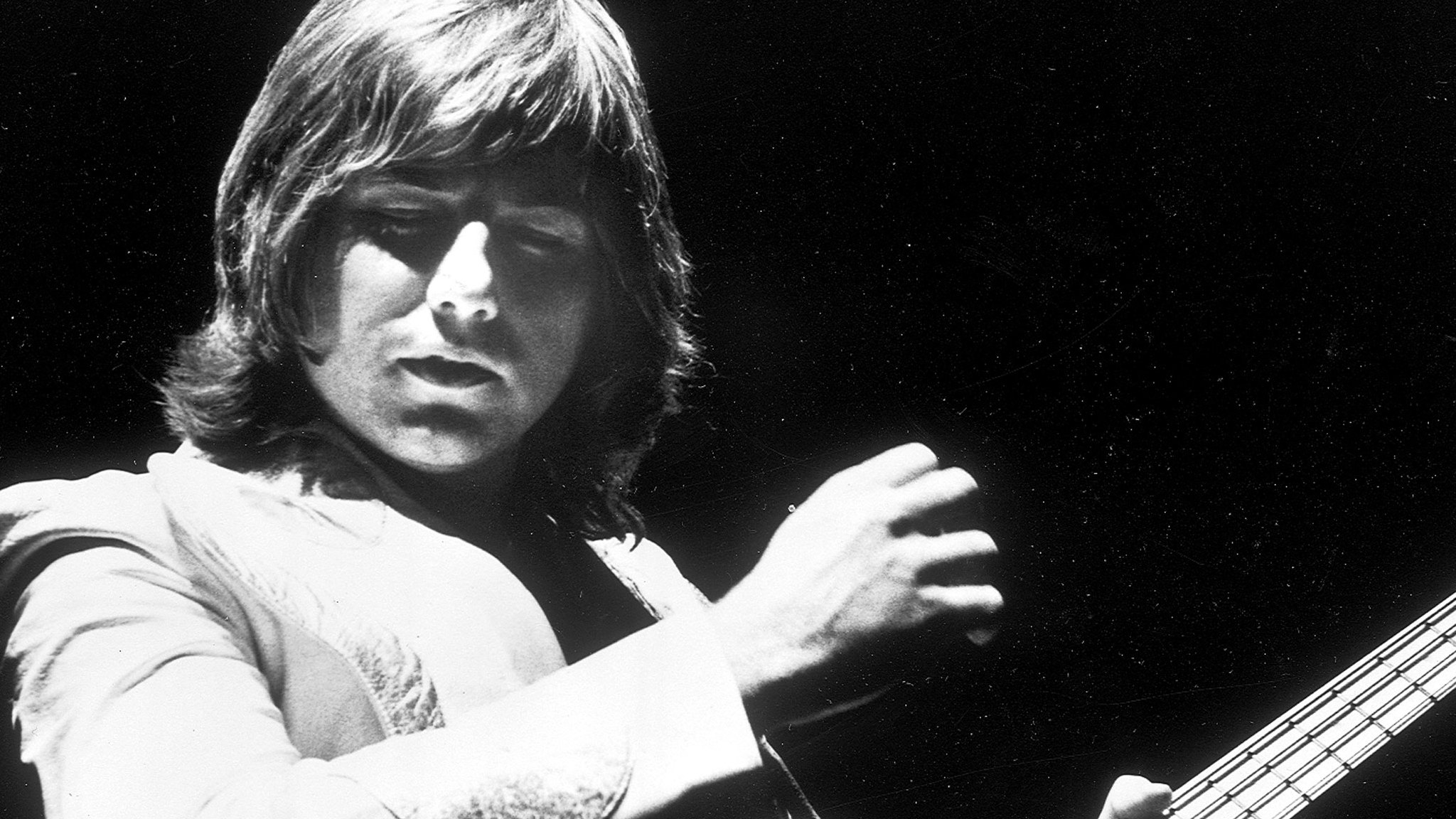
Select the newsletters you’d like to receive. Then, add your email to sign up.
You are now subscribed
Your newsletter sign-up was successful
Want to add more newsletters?

Every Friday
Louder
Louder’s weekly newsletter is jam-packed with the team’s personal highlights from the last seven days, including features, breaking news, reviews and tons of juicy exclusives from the world of alternative music.

Every Friday
Classic Rock
The Classic Rock newsletter is an essential read for the discerning rock fan. Every week we bring you the news, reviews and the very best features and interviews from our extensive archive. Written by rock fans for rock fans.

Every Friday
Metal Hammer
For the last four decades Metal Hammer has been the world’s greatest metal magazine. Created by metalheads for metalheads, ‘Hammer takes you behind the scenes, closer to the action, and nearer to the bands that you love the most.

Every Friday
Prog
The Prog newsletter brings you the very best of Prog Magazine and our website, every Friday. We'll deliver you the very latest news from the Prog universe, informative features and archive material from Prog’s impressive vault.
I spoke to Greg Lake in March this year following the news that his ex-ELP bandmate Keith Emerson had taken his own life. Discussing the death of an old colleague and sparring partner, whatever the circumstances, is never easy. Such occasions bring with them all sorts of feelings and memories, both good and bad. Greg, though shocked and saddened by the news as everyone else had been, responded in the frank and candid manner for which he was known.
He readily acknowledged some of the difficulties that the pair had encountered along the path of what had been a remarkable, and remarkably successful, career together. There had been differences, but there had also been camaraderie that comes from being in on the inside of that world. And every sentence and judgment that Greg offered regarding Keith and the legacy that would survive him came weighted with the knowledge that Greg himself was facing his own mortality.
Of course, no mention of this was made during our conversation. His own health was, of course, a private matter. However, inevitably perhaps, in this perpetually interconnected age, there had been rumours that he had been unwell for some time.
In recent times Lake had been working on his biography, looking back on an eventful life that had seen him turn professional in his late teens in the 60s, going onto the international stage first with King Crimson and then with ELP.
Not someone to hide his light under a bushel, Lake acquired his self-confidence at an early age. This was, after all, someone who’d written Lucky Man aged just 12 years old, and thereafter quickly established himself as a six-string gunslinger of note in his native Dorset.
While some singers’ voices can take time to bed down, Lake’s sonorous tones were clear and present on his earliest recordings. In September 1967, Lake’s band, The Shame, released their first single, a cover version of Janis Ian’s To Old To Go ‘Way Little Girl, with Lake’s assertive and unmistakable vocals to the fore.
Speaking several years ago, Robert Fripp recalled how Lake’s prodigious talents on the local music scene stood out. “It was obvious to those in the playing pool that some of us would go to the professional route and leave Bournemouth, where semi-professional and professional life were virtually the same. It also seemed likely that some of our team would become successful, and some famous. In my circle, Greg Lake was considered one of the front-runners for fame.”
Sign up below to get the latest from Prog, plus exclusive special offers, direct to your inbox!
Ever the pragmatist, Lake didn’t bat an eyelid when he was required to switch from lead to bass guitar as a member of King Crimson in 1969. Lake’s certainty and self-possession made him a natural frontman, an important factor which helped King Crimson’s slot supporting The Rolling Stones at Hyde Park in 1969 go so well.
While Keith Emerson wasn’t so struck with King Crimson when they supported The Nice in the UK and America, he was extremely impressed with Lake’s abilities as a singer and an instrumentalist. Given Emerson’s status as a senior figure on the rock circuit of the day, it might be assumed that Lake came on board as the junior partner. If that was the case, nobody told Greg. While accepting Keith’s preeminence as composer, Lake saw that the producer’s chair was empty and immediately filled it.
An accomplished player, with a decisive tone and a distinctive approach to playing bass, it was perhaps Lake’s singing that really marked him out as special. His vocal on King Crimson’s Epitaph possesses a disquieting beauty, with Lake sounding as if was born to sing Peter Sinfield’s foreboding words.
When speaking to Greg earlier this year as we talked about Keith and ELP, he was initially reluctant to single out a favourite moment in his career. However as the conversation developed, he thought Trilogy and the perhaps his performance on the title track was something he was particularly proud of.
When it came to recalling a favourite moment of Keith’s, Greg, without any hesitation, offered a memory of Emerson diving into a ripping blues on a Hammond organ.
Similarly, when we think of Greg Lake, what springs to mind above all the pomp and circumstance that was part and parcel of ELP, is that rich, sonorous baritone voice. Capable of touching tenderness or rousing within us, stirring emotions, he could bring down the angels or strip the paint off the choir stalls as required.
Losing our musical heroes is always hard, but losing Greg so soon after Keith seems especially cruel. There is that bittersweet moment as our sense of loss is tempered by a poignant celebration as we take comfort in the music he made throughout his life.
Sid's feature articles and reviews have appeared in numerous publications including Prog, Classic Rock, Record Collector, Q, Mojo and Uncut. A full-time freelance writer with hundreds of sleevenotes and essays for both indie and major record labels to his credit, his book, In The Court Of King Crimson, an acclaimed biography of King Crimson, was substantially revised and expanded in 2019 to coincide with the band’s 50th Anniversary. Alongside appearances on radio and TV, he has lectured on jazz and progressive music in the UK and Europe.
A resident of Whitley Bay in north-east England, he spends far too much time posting photographs of LPs he's listening to on Twitter and Facebook.

